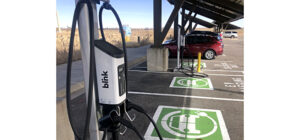Repair data shows BEVs, as well as PHEVs, require more repairs than gas-powered vehicles in all repair categories, according to study
Troy, Mich.—In its inaugural year incorporating franchise dealership repair visits with the Voice of the Customer (VOC) data to create a more expansive metric for problems per 100 vehicles (PP100), the new J.D. Power 2024 U.S. Initial Quality Study (IQS) states the industry average is 195 PP100. A lower score reflects higher vehicle quality.
Mass market brands, with a combined average of 181 PP100, outperform the industry average. Meanwhile, premium brands — often including more complicated systems and thus more reliance on connectivity — average 232 PP100.
“It is not surprising that the introduction of new technology has challenged manufacturers to maintain vehicle quality,” said Frank Hanley, senior director of auto benchmarking at J.D. Power. “However, the industry can take solace in the fact that some problem areas such as voice recognition and parking cameras are seen as less problematic now than they were a year ago.”
Proponents of battery electric vehicles (BEVs) often state these vehicles should be less problematic and require fewer repairs than gas-powered vehicles since they have fewer parts and systems. However, newly incorporated repair data shows BEVs, as well as plug-in hybrid electric vehicles (PHEVs), require more repairs than gas-powered vehicles in all repair categories.
“Owners of cutting edge, tech-filled BEVs and PHEVs are experiencing problems that are of a severity level high enough for them to take their new vehicle into the dealership at a rate three times higher than that of gas-powered vehicle owners,” Hanley said.
Gas- and diesel-powered vehicles average 180 PP100 this year, while BEVs are 86 points higher at 266 PP100. While there are no notable improvements in BEV quality this year, the gap between Tesla’s BEV quality and that of traditional OEMs’ BEV quality has closed, with both at 266 PP100.
In the past, Tesla has performed better, but that is not the case this year and the removal of traditional feature controls, such as turn signals and wiper stalks, has not been well received by Tesla customers.
Following are key findings of the 2024 study:
Frustration rising from false warnings
Often, owners don’t understand what warnings mean. For instance, rear seat reminder technology, designed to help vehicle owners avoid inadvertently leaving a child or pet in the rear seat when exiting the vehicle, contributes 1.7 PP100 across the industry.
Some mistakenly perceive it signals an unbuckled seat belt or cite the warning goes off when no one is present in the rear seat. Furthermore, advanced driver assistance systems, intended to save lives and reduce injuries, are irritating vehicle owners with inaccurate and annoying alerts from rear cross traffic warning and reverse automatic emergency braking features, a newly added feature to the survey this year.
Owners want to cut the cord
Problems with Android Auto and Apple CarPlay persist as the feature remains one of the top 10 problems. Customers most frequently experience difficulties connecting to their vehicle or losing connection.
More than 50% of Apple users and 42% of Samsung users access their respective feature every time they drive, illustrating that customers want their smartphone experience brought into the vehicle and also desire the feature to be integrated wirelessly.
In-vehicle controls are out of control
Features, controls and displays is the second most problematic category in the study, slightly better than only the notoriously issue-prone infotainment category. From such seemingly simple functions like windshield wipers and rear-view mirror to the more intricate operation of an OEM smartphone application, this category is particularly troublesome in EVs.
The PP100 incidence in this category is more than 30% higher in EVs than in gas-powered vehicles. This is exacerbated by Tesla’s recent switch to steering wheel-mounted buttons for horn and turn signal functions, a change not well received by owners.
One problem area that “stinks”
While, figuratively, all vehicle problems “stink,” there is one problem that is increasingly prevalent: unpleasant interior smell. This issue has worsened the most from 2023, with every brand except Kia and Nissan having an increase in unpleasant interior smell problems. Problem odors are described by owners to be emanating from their vehicle’s heating, ventilating and air conditioning systems.
The study is based on a battery of 227 VOC questions plus relevant repair data, all of which is organized into 10 vehicle categories: infotainment; features, controls and displays; exterior; driving assistance; interior; powertrain; seats; driving experience; climate; and unspecified (unique to repair).
Highest-Ranking Brands and Models
Ramis the highest-ranking brand overall in initial quality with a score of 149 PP100. Among mass market brands, Chevrolet (160 PP100) ranks second and Hyundai (162 PP100) ranks third.
Among premium brands, Porscheranks highest with a score of 172 PP100. Lexus (174 PP100) ranks second and Genesis (184 PP100) ranks third.
The parent corporation receiving the most model-level awards is General Motors Company (six awards), followed by Hyundai MotorGroupand Toyota MotorCorporation, each with four awards. Among brands, Chevrolet receives the most segment awards (four), followed by Lexus (three).
- General Motors Company models that rank highest in their respective segment are Cadillac XT5, Cadillac XT6, Chevrolet Equinox, Chevrolet Silverado HD, Chevrolet Tahoeand Chevrolet Traverse.
- Hyundai Motor Group models that rank highest in their respective segment are Genesis G80, Hyundai Santa Cruz, Kia Carnival and Kia Forte.
- Toyota Motor Corporation models that rank highest in their respective segment are Lexus IS, Lexus LC, Lexus UXand Toyota Camry.
- Toyota Motor Corporationhas the highest-ranking model overall, the Lexus LC,with 106 PP100.









Comments are closed.